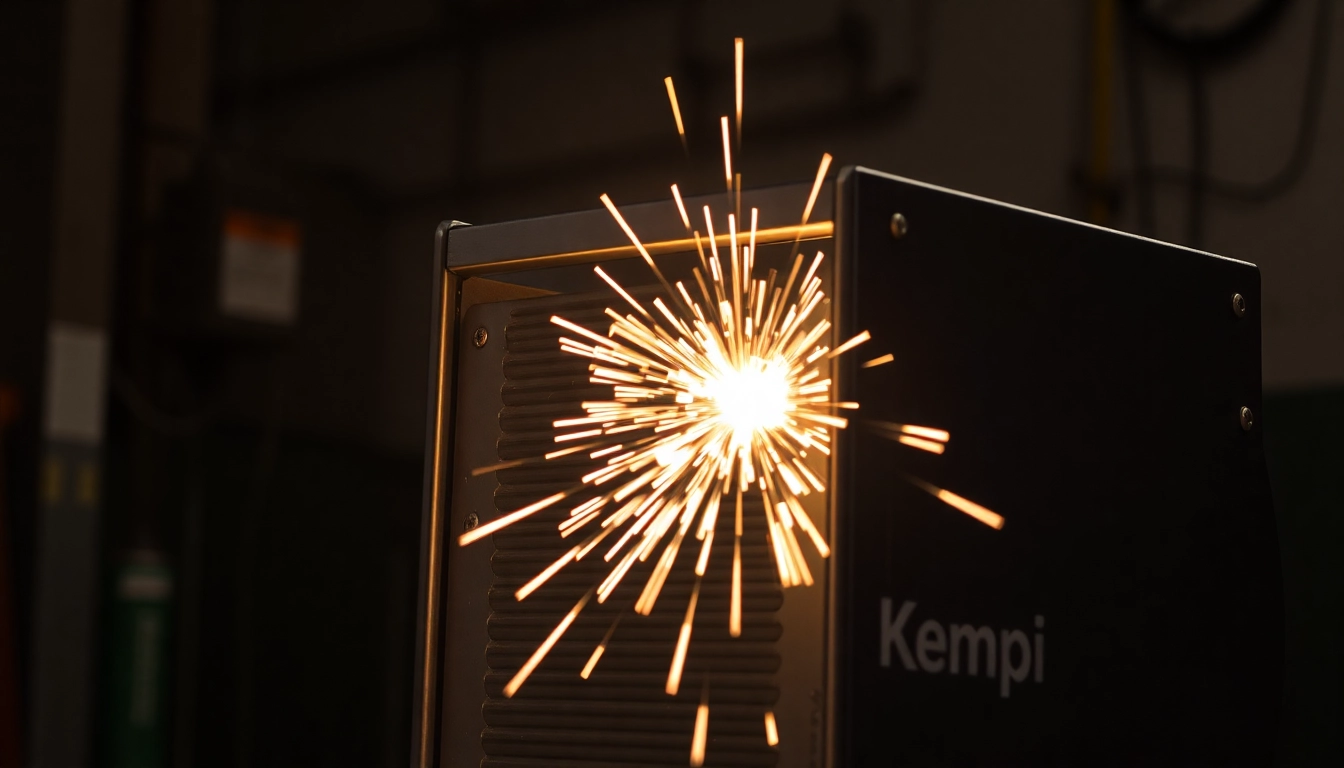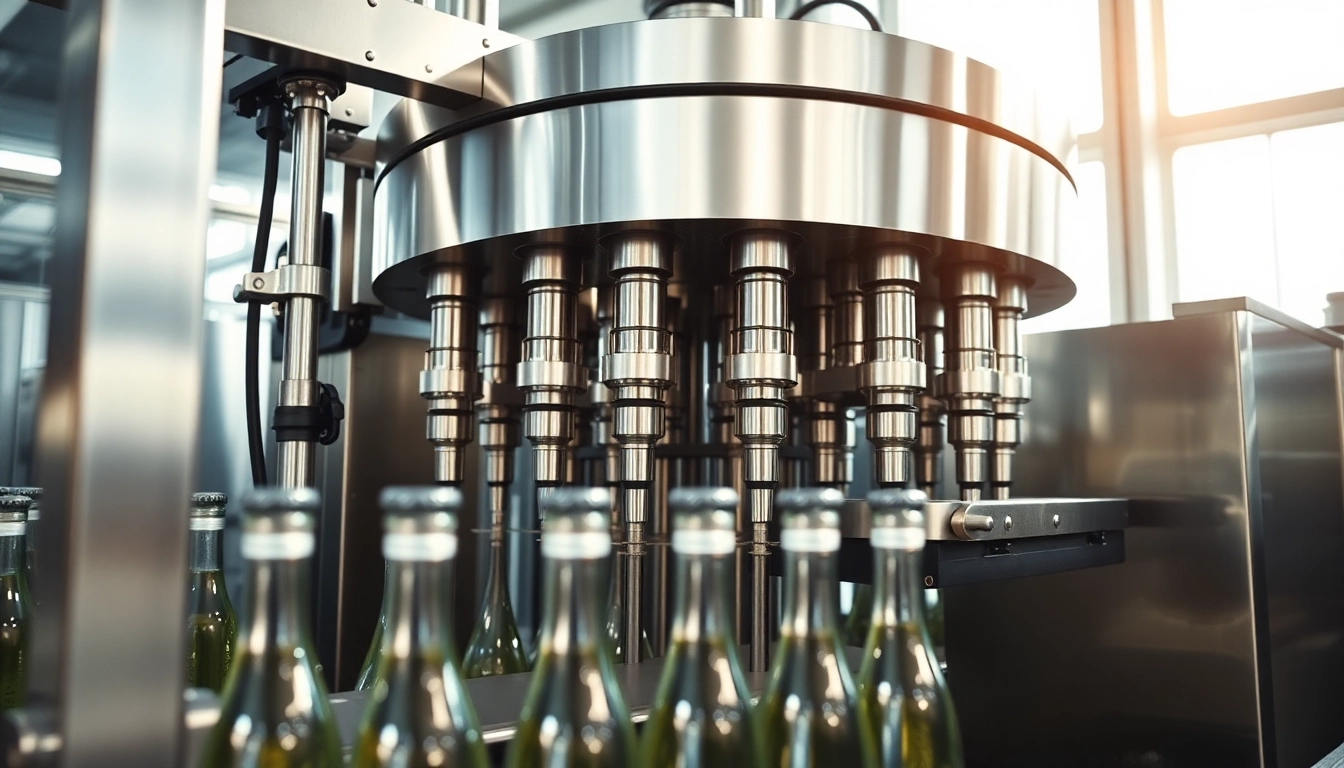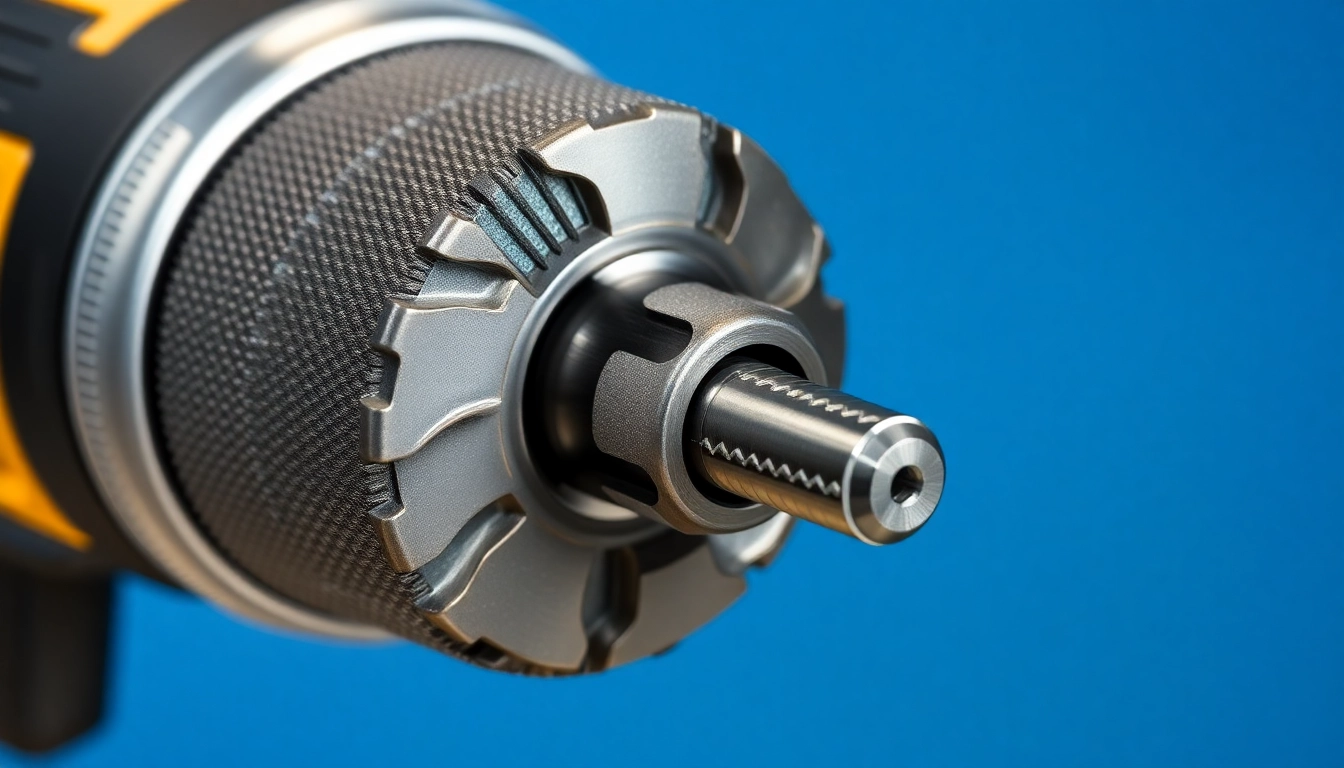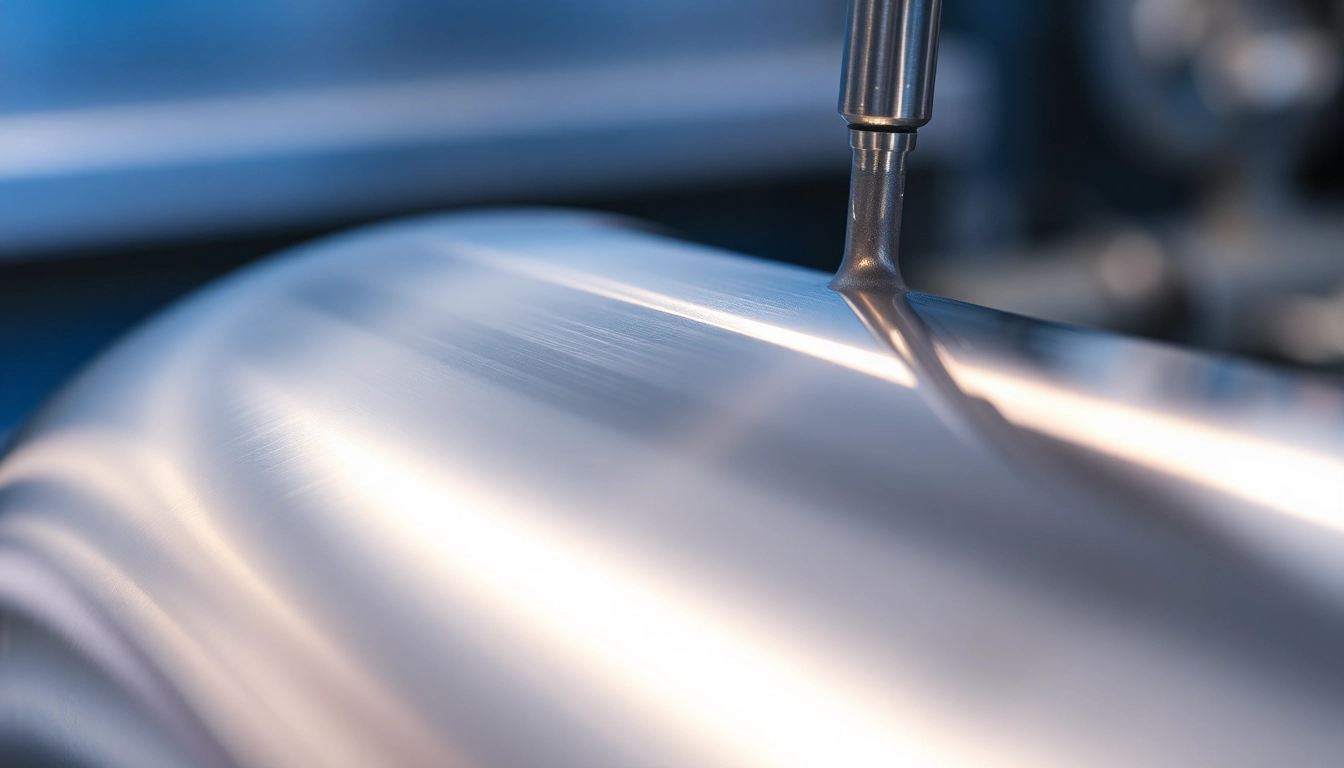Understanding Kemppi Welders
Kemppi welders are renowned in the welding industry for their precision, durability, and advanced technology. Originating from Finland, Kemppi Group Oy has established itself as a leader in the development of arc welding equipment, catering to a variety of applications across the globe. The company designs and manufactures cutting-edge welding machines, including MIG, TIG, and stick welders, that are widely used in both manual and automated welding processes. By choosing kemppi welders, users gain access to products that promise reliability and high performance, backed by years of engineering expertise.
Overview of Kemppi’s Engineering
Kemppi welders are products of rigorous engineering and innovation. With production facilities in Lahti, Finland, and Chennai, India, Kemppi employs a blend of modern technology and traditional craftsmanship to ensure each welder adheres to high-quality standards. Various models are engineered to meet international certifications, offering welders peace of mind regarding safety and efficiency.
One striking feature of Kemppi’s engineering is their focus on user-centric design. Each model is built with the operator in mind, promising ease of use, advanced functionalities, and ergonomic considerations. Whether it’s a portable unit or a powerful industrial machine, Kemppi welders are designed to tackle demanding tasks while ensuring comfort and control for the welder.
Key Innovations in Kemppi Welders
Kemppi has been a pioneer in several innovative technologies that enhance the welding experience:
- Intelligent Control Systems: Many Kemppi welders incorporate advanced control systems that optimize the welding process. This includes features like adaptive arc control which adjusts parameters dynamically based on welding conditions.
- Welding Software Integration: Kemppi welders often come with built-in software solutions that allow for easier monitoring and diagnostic capabilities, enabling welders to keep track of performance metrics efficiently.
- Energy Efficiency: Kemppi welders are designed with energy-saving technologies that reduce power consumption without compromising performance, aligning with global sustainability goals.
Comparing Kemppi Welders with Competitors
When evaluating Kemppi welders against competitors, several factors come into play:
- Reliability: For many professionals, the reliability of Kemppi welders under varied conditions is a crucial advantage. Many users report that Kemppi machines maintain performance standards longer than comparable models from other brands.
- Technological Advancements: Kemppi often leads in adopting the latest welding technology, providing users with modern solutions such as digital displays and customizable settings that enhance workflow. In contrast, some competitors may still rely on older technologies.
- Support and Service: Kemppi is known for its excellent customer support and service network. This reliability in after-sales service can be a decisive factor for businesses investing in welding equipment.
Choosing the Right Kemppi Welder for Your Needs
Determining the right Kemppi welder for your projects requires careful consideration of various factors that will maximize efficiency and relevance to your specific welding tasks.
Assessing Your Project Requirements
Your first step should be to assess the nature of the projects you plan to undertake. Consider the following criteria:
- Welding Type: Are you mainly working with MIG, TIG, or stick welding? Each application has specific requirements that determine the most suitable welder.
- Material Thickness: The thickness of the materials you plan to weld dictates the power and amperage your welder should offer. Kemppi offers machines ranging from light-duty to heavy-duty, able to accommodate various material thicknesses.
- Portability: If your projects demand movement across different locations, consider lightweight models or those designed for transportation.
Common Applications of Kemppi Welders
Kemppi welders find applications in numerous sectors:
- Construction: Ideal for large-scale structural work, Kemppi welders provide the power required for construction sites, both on-site and in fabrication shops.
- Automotive Industry: Used extensively in automotive repair and manufacturing due to their precision and adaptability to different metal types.
- Fabrication: Metal fabrication shops benefit from Kemppi’s technology that allows for fine-tuned welds to meet strict tolerances.
Price Ranges and Budget Considerations
The price range of Kemppi welders can vary significantly based on the model and features. Entry-level models aimed at hobbyists or small workshops might start at a few hundred dollars, whereas industrial-grade machines can exceed several thousand dollars. It’s essential to weigh your budget against the expected longevity and performance of the welder to determine the best value for your money.
Operating a Kemppi Welder Safely
Safety is paramount when welding, given the potential hazards associated with the process. Properly operating a Kemppi welder involves adhering to industry best practices.
Essential Safety Gear for Welders
Investing in quality safety gear is crucial. Essential equipment includes:
- Welding Helmet: A helmet with appropriate shading to protect your eyes from the bright arc light.
- Protective Clothing: Flame-resistant jackets and pants to prevent burns from sparks and spatter.
- Gloves: Heavy-duty gloves that provide both dexterity and protection against heat.
- Respirators: If working in an enclosed space with potential fumes, a respirator may be necessary to protect against harmful inhalants.
Standard Operating Procedures
Following standard operating procedures (SOPs) helps minimize accidents and injuries:
- Inspect Equipment: Always check your welder before starting to ensure it is in proper working order.
- Work Area Setup: Keep your workspace clean and free from flammable materials to avoid fire hazards.
- Electrical Safety: Ensure that electrical connections are secure, and be aware of overload protection measures.
Maintenance Tips for Longevity
Implementing regular maintenance for your Kemppi welder can extend its lifespan:
- Cleaning Components: Regularly clean the exterior and internal components to prevent the buildup of dust and contaminant that could affect performance.
- Checking Connections: Inspect cables and connections for wear and tear, replacing any damaged components promptly.
- Calibration: Periodically check and recalibrate the welder to ensure it remains within optimal performance parameters.
Maintaining Your Kemppi Welder
Proper maintenance is vital to ensure optimal functioning and durability of your Kemppi welder.
Regular Maintenance Tasks
Regular maintenance tasks include:
- Cleaning the Nozzle: Ensure the nozzle is free from spatter and blockage to maintain the quality of the weld.
- Replacing Worn Parts: Common consumables like contact tips, liners, and electrodes should be replaced as needed.
- Lubricating Moving Parts: Keeping mechanical components lubricated can prevent unnecessary friction and damage.
Troubleshooting Common Issues
Even the best machines can face issues from time to time. Here are common issues and their solutions:
- Inconsistent Arc: This could be due to poor connections or worn tips. Inspect and ensure all components are in good condition.
- Overheating: If the welder is overheating, check that you’re not exceeding duty cycle limits and allow for proper cooling.
Maximizing Performance Through Upgrades
To keep your Kemppi welder performing at its best, consider these upgrades:
- Advanced Torches: Upgrading to a higher-quality torch can improve your welding precision and comfort.
- Welding Software: Depending on your model, integrating advanced software can enhance functionality and user experience.
User Reviews and Feedback on Kemppi Welders
User feedback plays a critical role in evaluating the effectiveness and reliability of welding equipment. Analyzing testimonials and reviews reveals valuable insights into real-world performance.
Real User Experiences and Testimonials
Many users across various platforms have shared their experiences using Kemppi welders:
- Some appreciate the intuitive design and the ability to fine-tune settings according to their specific needs.
- Others highlight the durability of Kemppi welders, particularly in heavy industrial applications where consistent performance is required.
Pros and Cons from Professionals
Professional welders often relay the pros and cons they experience with Kemppi welders:
- Pros: Exceptional build quality, advanced technology integration, and excellent customer service.
- Cons: Upfront costs may be higher compared to some budget models; however, they often compensate with longevity and performance.
Comparative Analysis of Reviews
When examining reviews from various sources, common themes emerge regarding the reliability and performance of Kemppi welders compared to other brands. Users frequently cite the ease of operation and the supportive learning curve provided by the machine’s interface.
Ultimately, Kemppi welders stand out as a premium choice for both professionals and hobbyists alike. Their commitment to quality, innovation, and customer satisfaction positions them as a stable option for various welding applications. Whether you’re in construction, automotive repair, or metal fabrication, investing in a Kemppi welder is a decision that promises to pay dividends in quality, safety, and performance.



